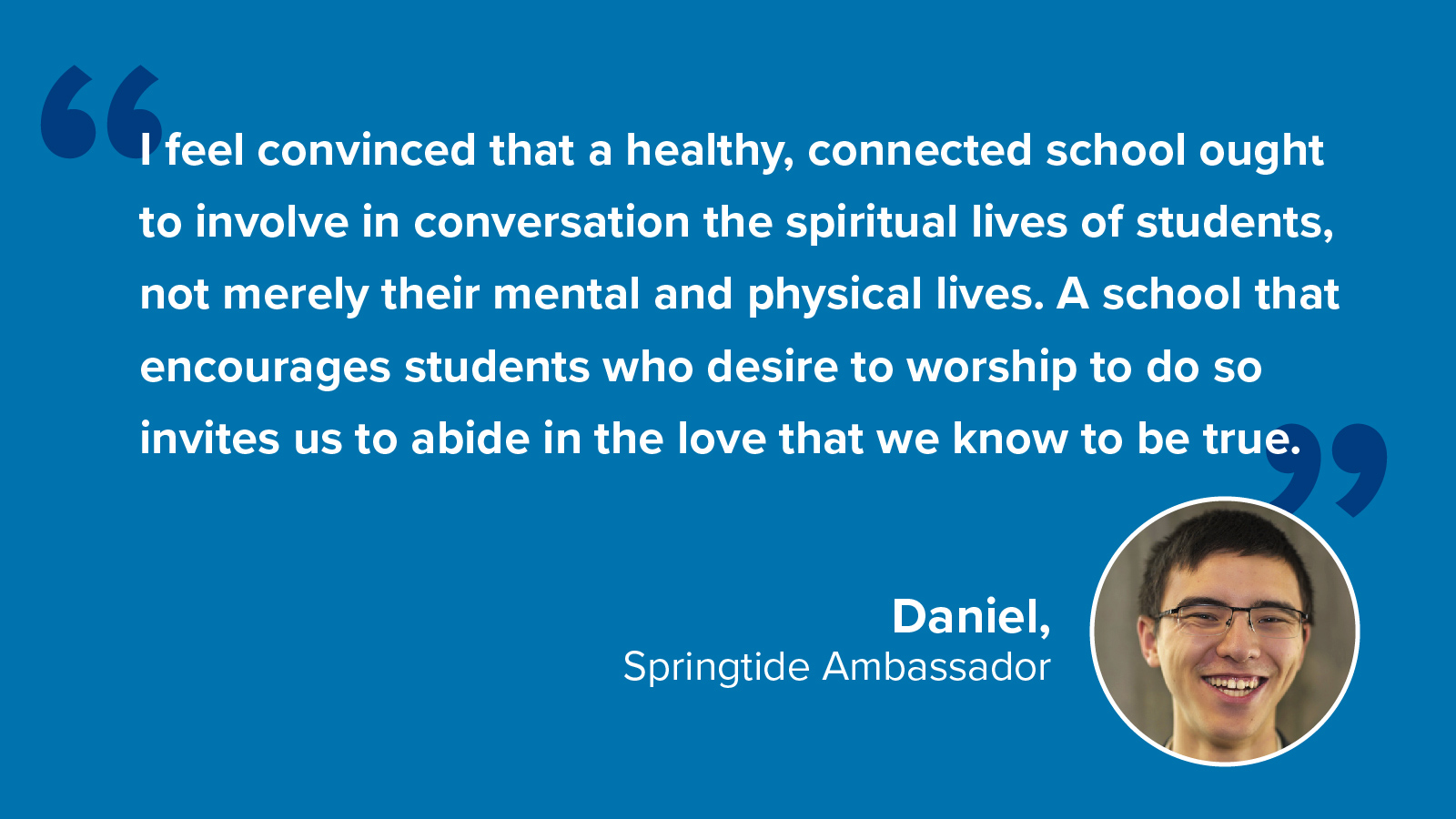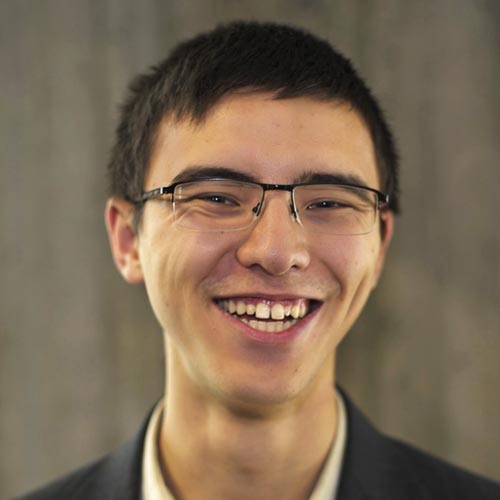
Finding Connection At School . . . The Hard Way
Finding connection and community is challenging at any stage in life. In this blog post, our SAP member Daniel talks about how finding a church community during college led to genuine connection.
When I looked for connection at my university, I discovered that it was not where the campus directed me, but a different place where I found the deepest sense of belonging.
Initially, I found community through my residence hall, because the university conscientiously built a leadership structure such that any student with motivation could make an impact. I loved this format and got involved right away. But to my great astonishment, the university planned to tear down my residence hall. So midway through my first semester, the housing department hastily moved my budding friends and me into separate halls. Seventy-two of my fellow residents and I shouldered the burdens together and felt frustrated with our administration, to whom we appealed. The ordeal shattered my first feelings of sincere connection to the university, its administration, and this community I’d come to know.
Yet that same fall, I also decided to get more involved in my Catholic Christian faith. Conveniently, there sat directly between many residence halls a Newman Center, an intellectual home of faith and reason, housed beside a modest church built over 50 years ago. On its lawn, beneath a towering tree, read a wide sign, “All Are Welcome.” Indeed, on my first morning there, I entered and a stranger walked up and hugged me. I felt welcomed.
I felt most deeply connected at my university through that Catholic Christian faith community. I learned that God, who created us and the universe, deeply loves me and everyone around me. I learned that he yearns for an intimate relationship with me and every person. And I found at that church a community of people who love and have felt loved. Its proverbial door was always open for me to grow and serve. It also offered a welcome supply of food, provided through support from the diocese and parishioners. I loved how all were welcome, and I could spend time with any friend I wanted to there, regardless of people’s religious beliefs. I felt in the Newman Center that I always had a home, no matter how life struck me. Both when the university tore down my residence hall and just a year later when my mother was killed, I especially knew that the church, its people, and God held me close.
My university, unfortunately, didn’t seem to view the church as a place worthy of connection. In fact, I heard many times that the housing department wanted our church to sell its land so that they could build new residences where the church stands today. I found this proposition appalling since the church’s place between the residences helped it to be so accessible to new students like me. The sense I got was that in the university’s effort not to come off as picking favorites, it tacitly promoted instead a worldview where God’s love was not a priority.
I feel convinced that a healthy, connected school ought to involve in conversation the spiritual lives of students, not merely their mental and physical lives. A school that encourages students who desire to worship to do so invites us to abide in the love that we know to be true. This encourages us to seek love from our Creator rather than through unhealthy means. Thus, better mental health often goes hand in hand with better spiritual health. I hope more schools consider policies to encourage faith, especially to the public.


Post written by SAP member Daniel



